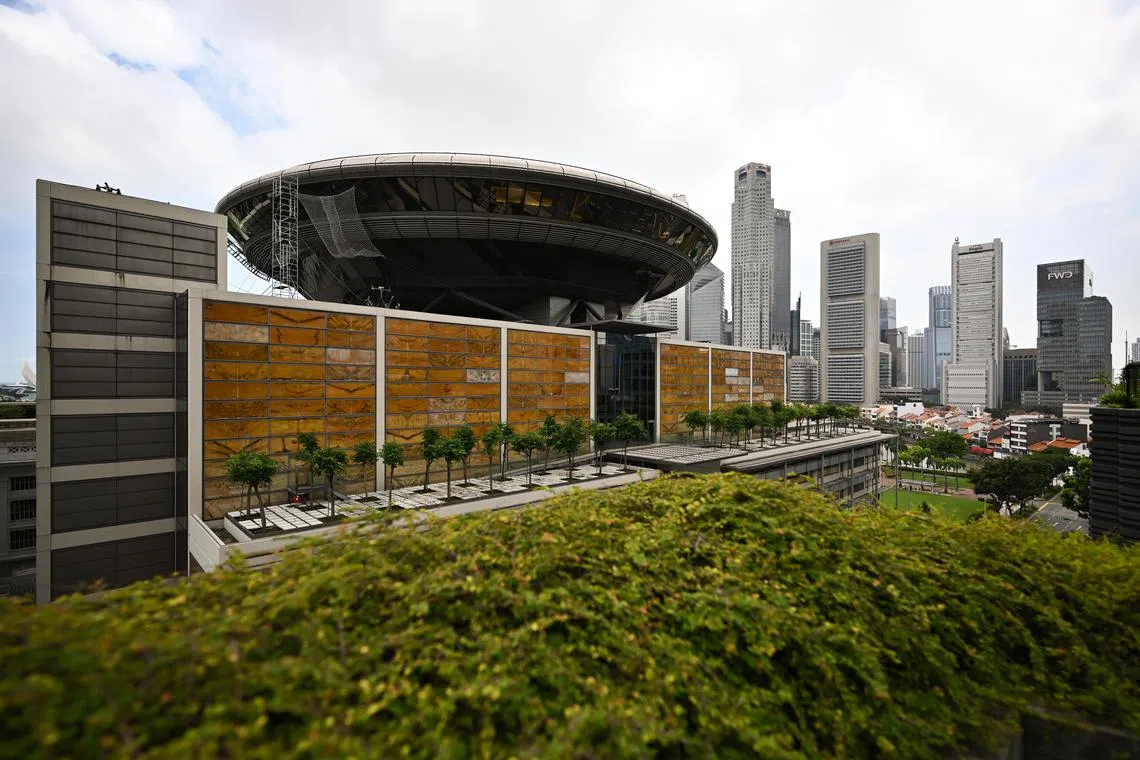High Court dismisses constitutional challenge by 4 inmates against provisions in drug law
Sign up now: Get ST's newsletters delivered to your inbox

The High Court dismissed their application for permission to seek a prohibiting order against the carrying out of their death sentences.
PHOTO: ST FILE
Follow topic:
SINGAPORE – Four convicted drug traffickers have failed in their bid to stop their executions by filing a constitutional challenge against provisions of the Misuse of Drugs Act that shift the burden of proof for specific elements of the offence to the accused person.
They contended that the two provisions violate the constitutionally protected presumption of innocence. The four – Singaporean Jumaat Mohamed Sayed and Malaysians Lingkesvaran Rajendaren, Datchinamurthy Kataiah and Saminathan Selvaraju – were not represented by lawyers. They also cited foreign cases in their arguments.
On Friday, the High Court dismissed their application for permission to seek a prohibiting order against the carrying out of their death sentences, and a court declaration that the two provisions violated Articles 9 and 12 of the Constitution.
In a written judgment, Justice Valerie Thean said the application was filed outside the requisite three-month period since the final court decision in their criminal cases.
The four were sentenced to death between 2015 and 2018, and their respective appeals against conviction and sentence were dismissed between 2016 and 2020.
Justice Thean added that despite the inmates’ assertion that they seek only to examine the Constitution, the true subject matter of their application was the propriety of their convictions. This amounted to an indirect attack on the earlier decisions in their criminal cases, said the judge.
She also found that there was no arguable case that the articles of the Constitution have been infringed.
The two provisions in question are statutory presumptions that impose a legal burden of proof on the accused to rebut them, once the facts triggering the presumptions have been proved by the prosecution.
Under Section 18(1), a person who is proved to be in possession of certain things containing a controlled drug is presumed to have had that drug in his possession, until he proves the contrary.
Under Section 18(2), a person who is proved or presumed to have had a controlled drug in his possession is presumed to have known the nature of that drug, until he proves the contrary.
The four inmates argued that the two provisions violate Article 9 of the Constitution, which provides that no person shall be deprived of his life or personal liberty, except in accordance with the law. They also argued that the provisions violate Article 12, which guarantees equal treatment under the law.
The Attorney-General – the defendant in the case – argued that the two provisions do not detract from the need for the prosecution to prove its case beyond reasonable doubt, and do not contravene the Constitution.
The Attorney-General said that while the presumption of innocence is a bedrock principle of the criminal justice system, it is settled law that Parliament may still legislate statutory provisions which shift the burden of proof to the accused in certain circumstances.
The Attorney-General said the foreign cases cited were unhelpful because they were decided in different constitutional contexts.
Justice Thean said the inmates’ reliance on Article 12 was misplaced, as their case was focused on the right to a fair trial, and not that the provisions were discriminatory.
As for Article 9, she referred to a landmark decision that the presumption of trafficking – if a person is proved to be in possession of more than a specified quantity of drugs – did not violate the Constitution.
“What the Constitution requires is that a person should not be punished for an offence until it has been established to the satisfaction of an independent and unbiased tribunal that he committed an offence, and that there is material before the tribunal that is logically probative of facts sufficient to constitute the offence,” she said.
Justice Thean said the presumption of innocence is not a mechanistic formula but a guiding principle that is expressed through technical rules. “That the prosecution bears the burden of proving its case beyond reasonable doubt ‘provides concrete substance for the presumption of innocence’.”


